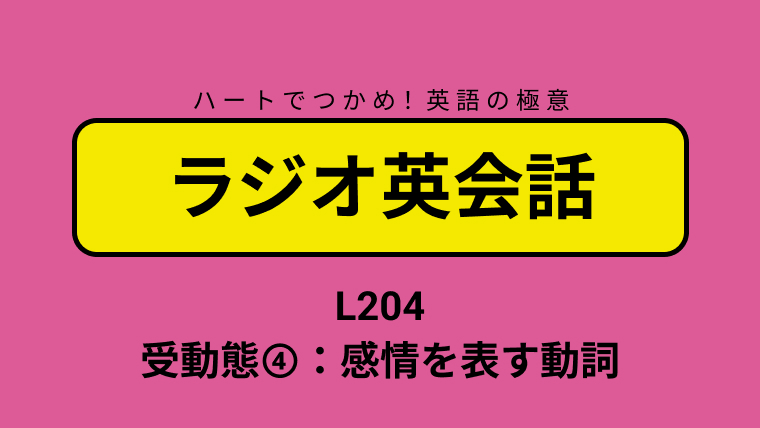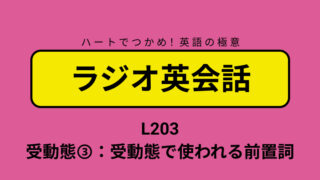NHKラジオ英会話のディクテーション「受動態④:感情を表す動詞」L204 2022/2/3

ディクテーション
講師陣の英会話を書きとり(スクリプト)
大西先生、クリスさん、ろーざさんの英会話部分を書きとってみましょう!(大西先生のギャグもできるだけ書きとります。)
Opening
Ohnishi: I’m twice the man I used to be.
Chris: What?
Ohnishi: I joked for five minutes this morning.
ラジオ英会話ハートでつかめ英語の極意、講師の大西泰斗です。
Roza: Hey everyone. Akino Roza here. Let’s get started.
Chris: Chris McVay here. But I feel tired after hearing Ohnishi-Sensei’s talk.
Roza: You are not the only one.
Chris: Ah, let’s go.
Ohnishi: さぁそれでは早速、始めていきましょう。
“booing” 3:05
Ohnishi: So, this word “boo” can be used as a verb too, right?
Roza: Yes, of course. You can say “The audience was booing them.”
Chris: Or “The standup comedian was booed by the audience.”
Roza: As a side note, you can also say “He is my boo.” which means he is my darling. A little bit different meaning, though.
ダイアログ和訳の後 4:58
Chirs: Well, I hope you are all satisfied with our textbook, but we are going to keep improving it to attract even more readers.
Practice 8:43
Roza: OK guys. So, here the point is that we want express the subject’s feelings with 過去分詞. So, in this key sentence, the feelings we have here are “weren’t satisfied”. So, let’s practice together now. Ready? “The fans weren’t satisfied with the concert.” Go.
How was that? You wanna try one more time? All right. “The fans weren’t satisfied with the concert.”
Great!
Ending
Ohnishi: Yeah, many people were annoyed by my comments.
・・・・
Chris: What comments?
・・・・
Ohnishi: と言うわけで今日はこの辺で。
All: Bye.
~ ディクテーションした内容やその解釈などに、聞き間違いや認識違いがある可能性はあります。ご了承ください ~


